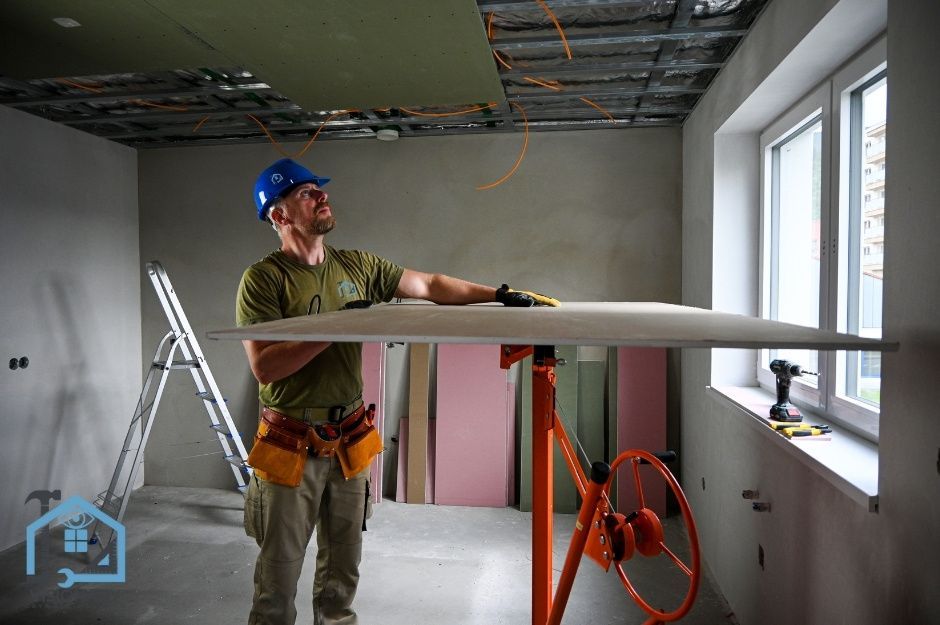Hanging Drywall Markham
The Sheetrock Hanging Specialists in Markham, Ontario

The art of hanging drywall can be transformative in residential and commercial spaces- as long as it is installed properly by trained and trusted professionals.
For property owners in Markham, Ontario, drywall offers a versatile, durable, and cost-effective solution for many situations- and the hanging process (when you know the proper way to hang drywall on walls) can quickly update and improve a room.
When you need expert drywall contractors you can trust to provide exceptional-quality workmanship and customer service, turn to Visionary Drywall Markham. Send us your details online or call to discuss your project and get a free quote.

Visionary Drywall Markham (HP)
We will get back to you as soon as possible.
Please try again later.
Why Hang the Top of Drywall First?
Most drywallers will start by hanging the top of drywall sheets for a number of reasons. Firstly, it helps with better alignment. Starting at the top ensures that the panel lines up with the ceiling, preventing gaps. Moreover, securing the top makes it easier to install the bottom.
Do You Leave a Gap When Hanging Drywall?
Yes, you do need to leave gaps between drywall sheets to prevent them from buckling and cracking.
You should also leave a gap between the floor and your sheetrock to prevent moisture from damaging your baseboards. Don’t worry about these gaps affecting your end result – mudding and taping will help you create a seamless and uniform surface.
Is There a Right and Wrong Way to Hang Drywall?
Yes! This is why the job is best left to the professionals. Without the proper knowledge, tools, and experience, it is easy to hang drywall incorrectly, which could lead to serious damage and costly repairs further down the line. Experts will consider numerous factors, such as the direction it is hung, the method to drive screws, and more.
Do You Stagger Drywall when Hanging?
Yes, ideally, drywall should be staggered when hung. This is likely to give you longer-lasting results as it provides added strength. Joints are known for being the weakest part of walls and ceilings, and staggering plasterboard minimizes the joints. Furthermore, staggering reduces the possibility of cracking and streamlines the taping and finishing process.
Location
ON, Markham, Canada
All Rights Reserved | Visionary Drywall Markham
